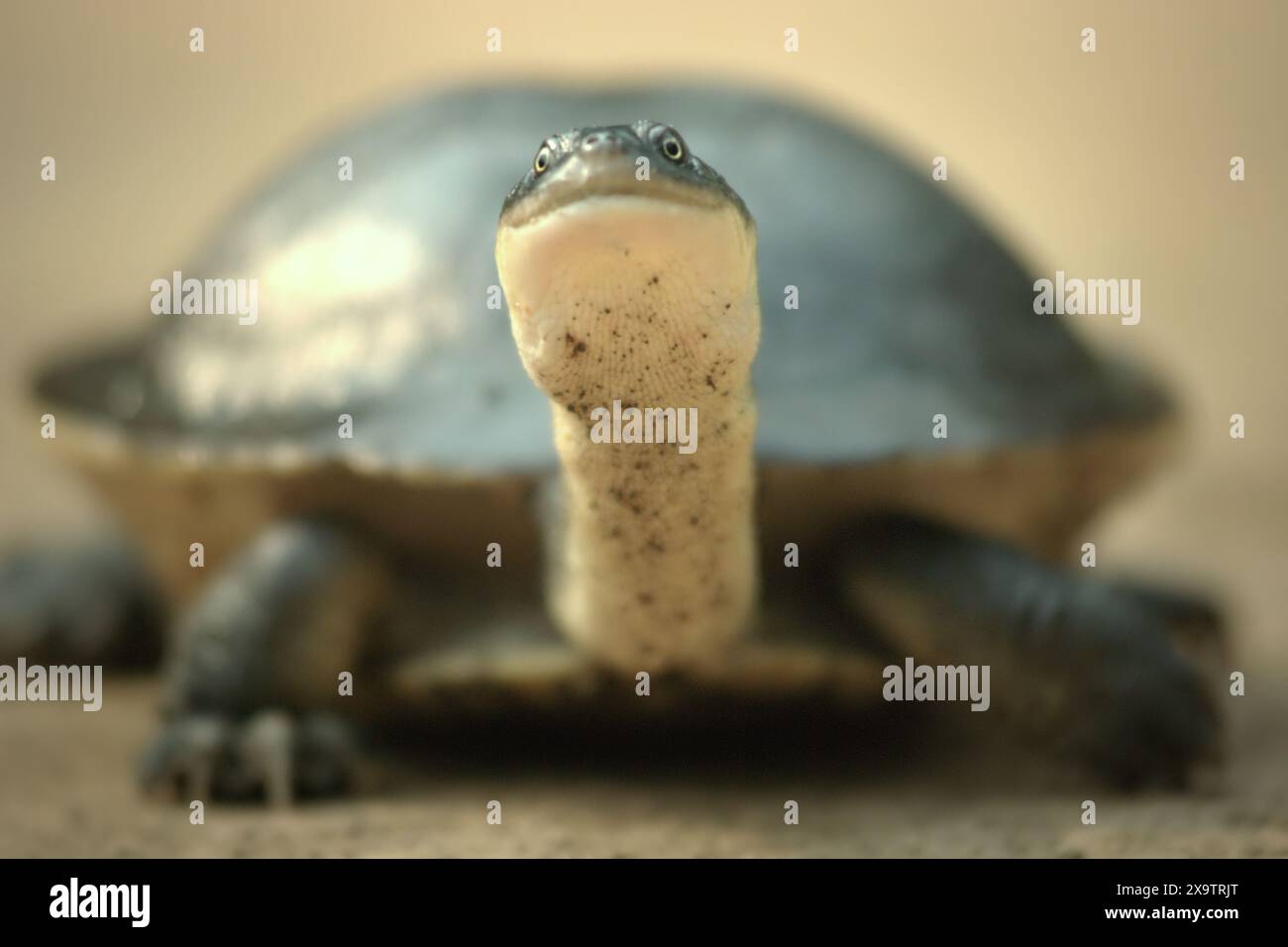A rare and threatened species of freshwater turtle, the critically endangered Rote Island's endemic snake-necked turtle (Chelodina mccordi).

Image details
Contributor:
Pacific Imagica / Alamy Stock PhotoImage ID:
2X9TRJTFile size:
28.6 MB (469 KB Compressed download)Releases:
Model - no | Property - noDo I need a release?Dimensions:
3872 x 2581 px | 32.8 x 21.9 cm | 12.9 x 8.6 inches | 300dpiDate taken:
10 July 2009Location:
Jakarta, IndonesiaMore information:
A rare and threatened species of freshwater turtle, the critically endangered Rote Island's endemic snake-necked turtle (Chelodina mccordi) is photographed at a licensed ex-situ breeding facility in Jakarta, Indonesia. Conservation of the species has been challenged by illegal wildlife trading, but climate change is now also a daunting threat. A team of scientists led by Matthias Biber (Department for Life Science Systems, School of Life Sciences, Technical University of Munich, Freising) revealed that reptile richness is likely to decrease significantly across most parts of the world with ongoing future climate change. "This effect, in addition to considerable impacts on species range extent, overlap and position, was visible across lizards, snakes and turtles alike, " they wrote in a May 2022 paper first published on Global Ecology and Biogeography. The International Union for Conservation of Nature (IUCN) says that rising temperatures have led to ecological, behavioral, and physiological changes in wildlife species and biodiversity. "In addition to increased rates of disease and degraded habitats, climate change is also causing changes in species themselves, which threaten their survival, " they wrote on IUCN.org.